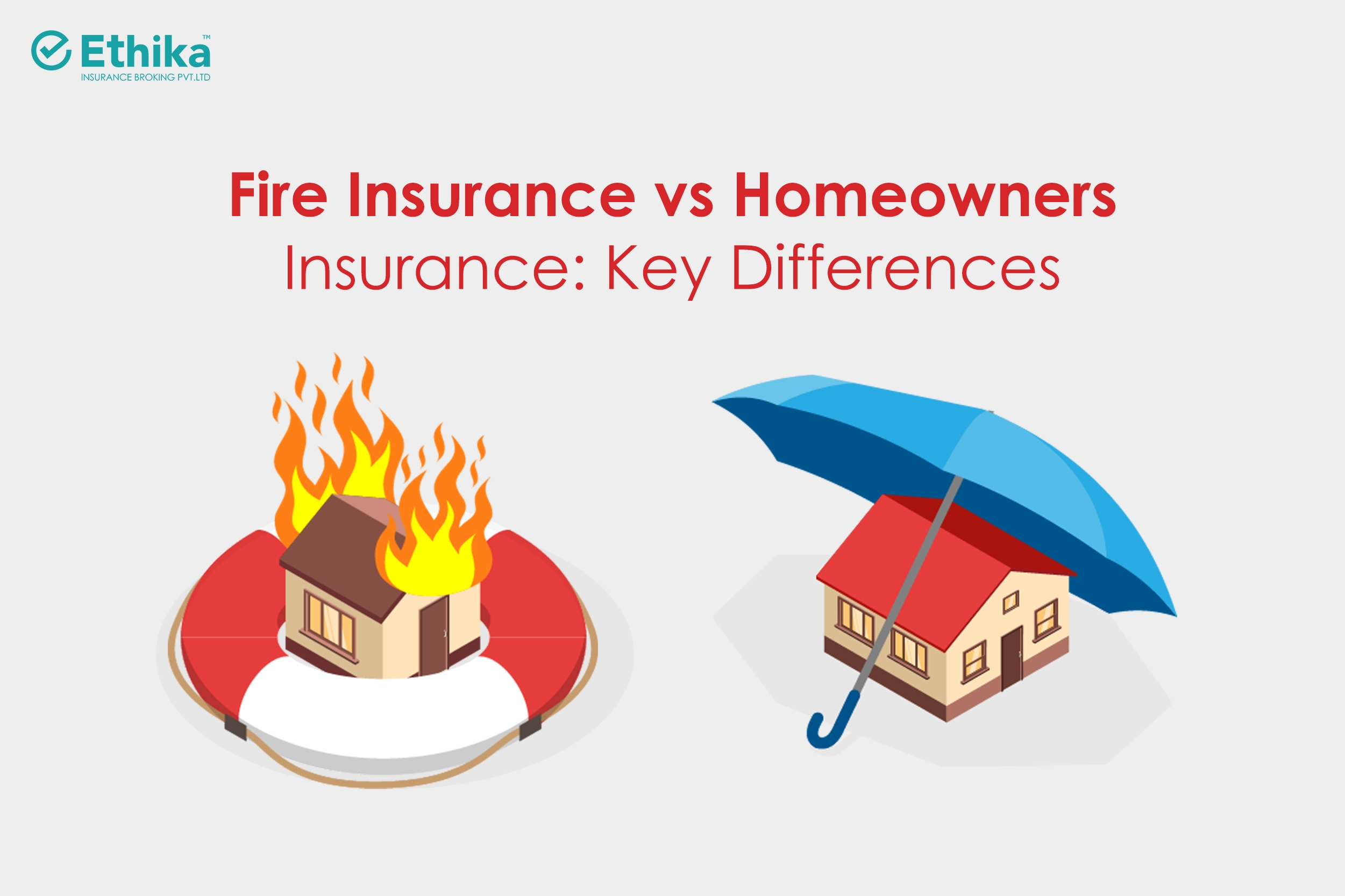
When it comes to safeguarding your home, understanding the nuances of insurance coverage is crucial. While the terms “fire insurance” and “homeowners insurance” might seem interchangeable, they offer distinct levels of protection. This article delves into the key differences between these two types of insurance, with a special focus on Bharat Griha Raksha Insurance, to help you make an informed decision for your property.
Bharat Griha Raksha Insurance, previously known as the Fire policy, primarily shields your property from fire-related damages and specific perils. On the other hand, homeowners insurance offers a more comprehensive safety net, extending its coverage to include theft, liability, and various other risks that threaten your home and belongings. Let’s explore the specifics of each policy to help you choose the ideal protection for your peace of mind.
What’s on this page?
Bharat Griha Raksha Insurance vs. Homeowners Insurance: Key Differences
When comparing Bharat Griha Raksha insurance and homeowners insurance, it’s essential to understand that while both policies provide coverage against fire-related incidents, homeowners insurance expands beyond fire risks to offer broader protection. Earlier the Bharat Griha Raksha insurance policy used to be known as the Fire policy.
Here’s a breakdown of coverages under Bharat Griha Raksha insurance meaning and homeowners insurance definition and how they differ:
- Bharat Griha Raksha Insurance Meaning and Coverage: Bharat Griha Raksha insurance protects your property from specified perils, including fire, acts of God, and man-made perils. However, it typically excludes events like earthquakes, which require an additional premium. Fire insurance policies are available for both commercial and residential properties.
- Homeowners Insurance: A type of fire insurance policy that covers loss or damage to a home and its contents. In addition to fire risks, homeowners insurance covers perils like theft, robbery, electrical & mechanical breakdown of equipment and third-party liability, making it a more comprehensive choice for residential property owners.
Homeowners Insurance: Expanded Fire Coverage and Additional Protections:
Homeowners insurance includes expanded fire insurance coverage alongside other protections. Here are some of the primary protections covered under a typical homeowners insurance policy:
- Fire and Lightning
- Explosion or Implosion
- Aircraft Damage: Losses from aerial device collisions or parts falling from aircraft
- Human-Made Perils: Includes riots, strikes, and malicious damage (excluding confiscation by authorities)
- Acts of God: Coverage for storm, typhoon, flood, and inundation (excluding earthquakes unless added)
- Impact Damage from external vehicles or animals
- Subsidence, Landslide, and Rockslide
- Water Damage due to leaking water tanks, pipes, or sprinkler systems
- Bush Fire
- Theft and Burglary
- Portable Equipment Coverage
- Jewelry and Valuables Protection
- Art, Painting, and Curios Coverage
- Loss of Rent and Temporary Resettlement Cover
- Personal Liability Coverage
- Cyber Security Coverage
- Employees’ Compensation for domestic workers
Key Differences Between Fire Insurance and Homeowners Insurance:
| Feature | Bharat Griha Raksha Insurance | Homeowners Insurance |
| Definition | Covers loss or damage due to an insured peril, including fire. | Covers loss or damage to home due to fire and other risks like burglary, liability, and more. |
| Policy Period | Ranges from 1-year short-term to long-term (up to 20 years) | Ranges from 1-year short-term to long-term (up to 20 years) |
| Theft, Burglary | Not covered | Covered |
| Premium | Lower than homeowners insurance | Slightly higher due to additional protections |
| Third-Party Liability | Not covered | Coverage for third-party liability included |
| Ideal for | Single flat owners, Housing societies | Homeowners and residential property owners |
How to Choose Between Bharat Griha Raksha Insurance and Homeowners Insurance:
To decide between Bharat Griha Raksha insurance and homeowners insurance, consider your property’s needs. Bharat Griha Raksha insurance offers essential coverage but is often suited to individual flat owners or housing societies. In contrast, homeowners insurance extends protection, making it ideal for residential property owners.For more information on Bharat Griha Raksha insurance types and homeowners insurance, or if you’re interested in a quote, schedule a call with Ethika Insurance Brokerage.
FAQ:
Is it compulsory to buy homeowner’s insurance?
No, it’s not legally required to have homeowners insurance. However, lenders may require it for mortgage holders to protect their financial interest in the property.
What is the eligibility to purchase a homeowner’s insurance policy?
You must have an insurable interest in the property, meaning you would face a financial loss if the property were damaged.
What to do with homeowners if I sell my home?
You’ll need to transfer or cancel your policy because you lose your insurable interest after selling.
I’m staying in a rented home, can I take Homeowner’s insurance?
Yes, if you’re renting, you can use homeowners insurance as a form of renters insurance to cover personal belongings like electronics and furniture. However, you can’t insure the structure itself as you don’t own it.
My electronic items are damaged due to leakage of water from the water tank. Is it covered under homewoner’s insurance?
Yes, homeowners insurance typically covers water damage to personal items due to a leaking water tank, assuming the insured was not negligent.